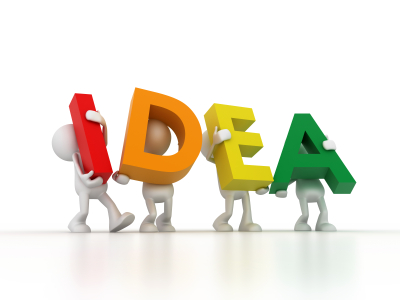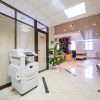
Every business begins with an idea. The idea may or may not be your own, but it will determine, to a large extent, the success of your business.
So it follows that finding a good idea, the right idea for you at this time and place, is paramount in your attempt to begin a solo business.
But how do you know whether you have a good business idea or not? How do you know that the product or service you will offer will be something that others will buy?
Maybe you trust your brother-in-law Harvey’s opinion that “this business is going to revolutionize the future of every man, woman, and child living in the free world.”
Maybe you read an article in “Ten Thousand Secret Small Business Ideas That Will Make You A Millionaire in Sixty Days Guaranteed” and decided upon Idea #8,257, the one business idea that is suited to your skills and liking.
Or maybe you just have a hunch that the lint in your navel will become the basis of EarPlugs-R-Us.com, the worlds first and best organic sleep aid.
One of the best reasons in support of doing a full-fledged business plan is that you will test and validate the usefulness of your idea during that document’s research and planning.
A word of caution though: Business plans tend to be fatally optimistic. It seems like every company ever started ends up being profitable in Year 3!
There is no foolproof test for a business idea that I am aware of. But I can tell you that most sound business ideas have some similar characteristics. Good business ideas lead to good products and services that are in demand.

See how your business idea stacks up against these:
(Author’s Note: the term “product” below could be replaced by the word “service” if that’s the type of business your idea leads to.)
1. Your product has value over and above similar offerings in same niche market.
2. There are obvious benefits your product gives to the user that similar products don’t.
3. The product is simple to understand and use.
4. The product does not require the user to change beliefs or behavior.
5. The product is somehow innovative (but not necessarily high-tech).
6. The product, its benefit, and its use can easily be explained.
7. The product can be tested or tried before it is purchased.
8. The product result(s) satisfies the buyer’s wants and gives immediate benefit.
9. The product can be purchased with little risk to the customer.
10. The product is “cool” or noteworthy or memorable to the point that the buyer would want to tell a friend about it.
There you have it, ten characteristics of a good business idea.
Your idea can still be a sound one without satisfying every one of these ten criteria. But the more of these characteristics your idea has, the better chance you will have of developing a viable, sellable product.
Author: Will Collins, marketing consultant at www.essayshop.org







